 |
|
||||
Biographies
PUBLIC LECTURE
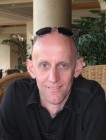
John Fyfe
John Fyfe is an internationally recognized researcher into climate variability and change and is a
Review Editor of the Intergovernmental Panel on Climate Change (IPCC) Fifth Assessment Report to be published in 2013.
He was a Lead Author of the IPCC Fourth Assessment Report (2007), and contributed to the
Nobel Peace Prize that was awarded to the IPCC in 2007. He was an author of the Arctic Climate Impacts Assessment (2005),
and has received a number of awards including the President's Prize from the Canadian Meteorological and Oceanographic Society
for his contributions to the understanding of climate variability and change, especially in polar regions.
John Fyfe is a Senior Scientist in the Canadian Centre for Climate Modelling and Analysis of Environment Canada, and is an Adjunct Professor at the University of Victoria in the School of Earth and Ocean Sciences.
PLENARY LECTURERS
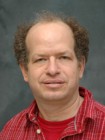
Dror Bar-Natan
I believe math is too deep. Rather than making it deeper, a better use of my time would be to make some deep ends easier and more accessible.
I believe math is too abstract, or at least appears to be too abstract, for much of what may be computed hardly ever is.
Thus, whenever I can, I code. Yet I have sinned a few times and written on deep math that was not accompanied with programs.
I usually work on knot theory and its surprising relationship with algebra, geometry and quantum field theory.
I got my Ph.D. at Princeton, did time at Harvard, Hebrew U., Berkeley and MSRI, and I now work at the University of Toronto.
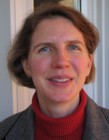
Lisa Jeffrey
Lisa Jeffrey obtained her D.Phil. in mathematics in 1992 from Oxford University under the
supervision of Michael Atiyah. Her first academic appointment in Canada was in the Mathematics
Department at McGill University. Since 1998 she has been Professor in the Mathematics
Department of University of Toronto. Her research is on mathematical physics and symplectic geometry.
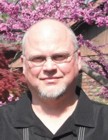
Marius Junge
Marius Junge, born in 1962, obtained his PhD and habilitation from the Christian-Albrechts Universität Kiel, Germany,
after the study of mathematics, computer science and philosophy. After visiting Isreal (92) and Denmark (98),
he moved to the University of Illinois in 1999 and become professor in 2007.
His research interests are centered around functional analysis and include operator algebras, in particular operator spaces, noncommutative probability, noncommutative harmonic analysis, and more recently quantum information theory. Many of Junge's work falls into the Grothendieck program for operator algebras. He was awarded the title of Doob Scholar from the mathematics department, and received the Romano Professorial Scholarship from the College of Liberal Arts and Sciences at the University of Illinois. Alongside with Charles Feffermann he is one of the leaders of a laboratory at the ICMAT, a Spanish research institute.
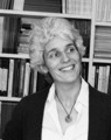
Ulrike Tillmann
Ulrike Tillmann received her PhD from Stanford in 1990 and her Habilitation from Bonn in 1996.
She has held positions at Cambridge and Oxford and is interested in algebraic topology and its applications,
in particular to the study of moduli spaces and quantum field theories.
Professor Tillmann was an EPSRC Advanced Fellow 1997-2003; an invited speaker at the ICM 2002; a recipient of the LMS 2004 Whitehead Prize and the Bessel Research Award 2008 of the Humboldt Stiftung. She is a Fellow of the Royal Society.
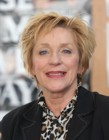
Margaret Walshaw
Margaret Walshaw is based at Massey University in New Zealand. She is Research Director at her
College and co-director of the Centre of Excellence for Research in Mathematics Education.
She is Associate Editor of the Journal of Mathematics Teacher Education and a past chief editor of
Mathematics Education Research Journal.
Margaret’s main research interest is in making connections between social theory and mathematics education and has developed through two edited books: ‘Mathematics Education within the Postmodern’, and ‘Unpacking Pedagogy: New Perspectives for Mathematics Classrooms’. She is the author of the book ‘Working with Foucault in Education’ and co-author of ‘Are our standards slipping? Debates over Literacy and Numeracy Standards’ and of ‘Effective Pedagogy in Mathematics: Best Evidence Synthesis Iteration’, written for the New Zealand Ministry of Education.
SCIENTIFIC DIRECTORS
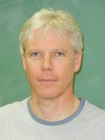
Douglas Farenick
Douglas Farenick obtained his PhD from the University of Toronto in 1990 under the direction of Chandler Davis.
After two years at the Centre de recherches mathématiques in Montreal, he joined the faculty at the University of Regina,
the institution at which he did his undergraduate studies. His areas of research interest are operator theory,
functional analysis, and linear algebra.

Don Stanley
Don Stanley completed his PhD in 1997 with Paul Selick at the University of Toronto.
After three years working in Germany and France, he returned to Canada in 2000 and in 2003 moved to the University of Regina.
His main areas of research are homotopy theory and derived categories.






